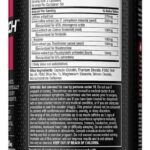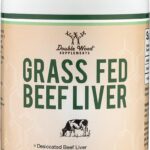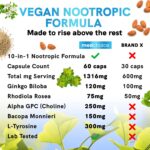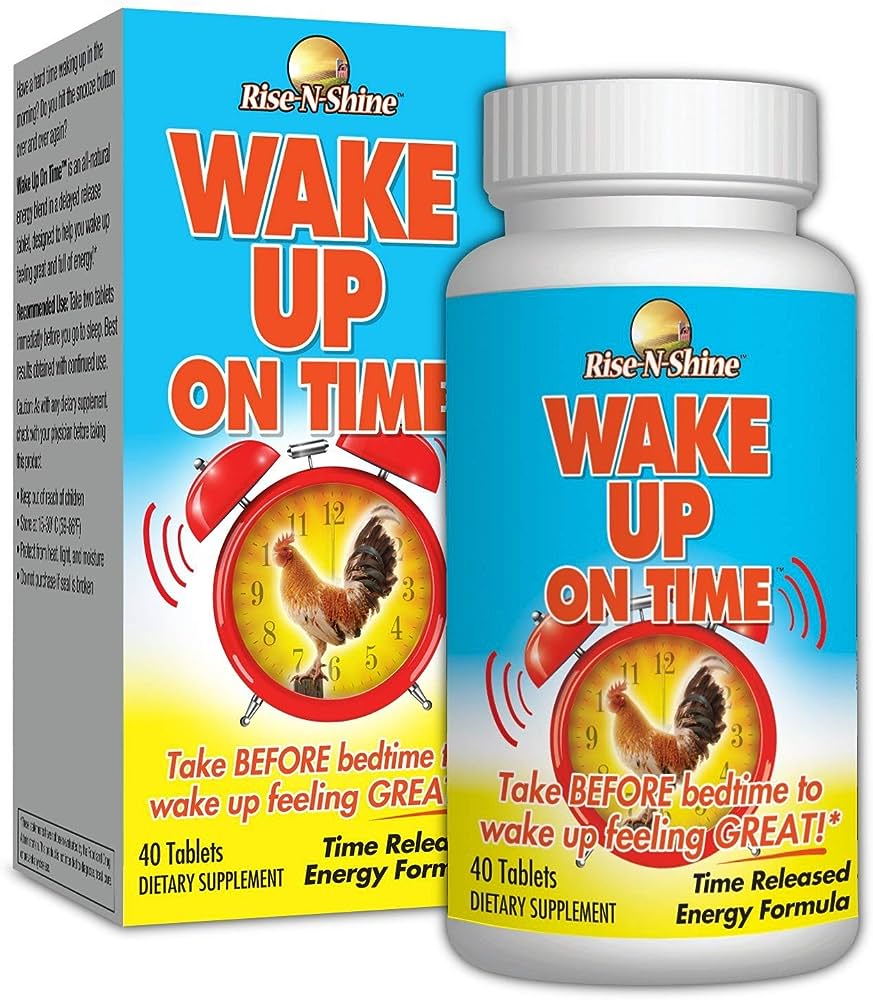Hey there! Have you ever wondered if all those health supplements you see on store shelves are actually safe for you to take? It’s a valid question, considering how many different types of supplements are out there, each promising all sorts of health benefits. Well, the answer isn’t as straightforward as you might think.
While many health supplements are indeed safe for consumption, there are a few factors to consider before incorporating them into your daily routine. It’s important to note that not all supplements are regulated by the Food and Drug Administration (FDA), which means that their safety and efficacy may not be backed by rigorous scientific research. Additionally, some supplements can interact with medications you may be taking, causing unexpected side effects.
But don’t worry, in this article, we’ll dive deeper into the world of health supplements, exploring the potential risks and benefits they may offer. You’ll learn about the importance of doing your research and consulting with a healthcare professional before adding any new supplements to your regimen. Whether you’re interested in boosting your immune system, enhancing brain function, or improving athletic performance, we’ll provide you with the information you need to make informed decisions about your health. Stay tuned!
Importance of Health Supplements
In today’s fast-paced world, maintaining good health and wellness is a top priority for many individuals. Along with a balanced diet and regular exercise, health supplements have gained popularity as a way to support overall wellbeing. These supplements come in various forms, including vitamins, minerals, protein powders, and herbal extracts, and are widely available in health food stores and online. While they can provide numerous benefits, it is important to understand their usage, potential risks, and how to choose the right supplements for your needs.
Types of Health Supplements
Health supplements can be categorized into different types based on their composition and intended purpose. Some common types include vitamins and minerals, protein powders and shakes, omega-3 fatty acids, and herbal and botanical supplements.
Vitamins and minerals are essential nutrients that the body requires in small amounts for proper functioning. They play a crucial role in supporting various bodily functions, including metabolism, immune system health, and bone strength. Protein powders and shakes, on the other hand, are often used by individuals looking to support muscle growth and recovery, especially those involved in regular exercise or sports activities.
Omega-3 fatty acids, commonly found in fish oil supplements, are known for their potential to improve heart health and reduce inflammation. Lastly, herbal and botanical supplements are derived from plants and may provide various health benefits such as immune system support, stress reduction, and improved cognitive function.
Usage and Benefits of Health Supplements
Health supplements are typically used to fill nutritional gaps and support specific health goals. They can provide a convenient way to obtain nutrients that may be lacking in one’s diet. For example, individuals who follow a vegetarian or vegan diet may benefit from taking vitamin B12 supplements, as this nutrient is primarily found in animal products. Similarly, pregnant women often take prenatal vitamins to ensure they are meeting their increased nutrient needs during pregnancy.
Aside from addressing nutrient deficiencies, health supplements have been linked to various potential benefits. For instance, omega-3 fatty acid supplements have shown promise in reducing the risk of heart disease and promoting brain health. Additionally, some herbal supplements, such as chamomile or valerian root, have been used to promote relaxation and improve sleep quality.

Potential Risks and Side Effects of Health Supplements
While health supplements can provide benefits, it is crucial to be aware of their potential risks and side effects. One of the main concerns is the potential for interactions with medication. Some supplements can interfere with the absorption or effectiveness of certain medications, leading to potential health complications. It is essential to consult with a healthcare professional if you are taking any medications before starting any new supplements.
Overdosing and toxicity are also potential risks associated with health supplements. While vitamins and minerals are essential for good health, excessive intake can lead to toxicity and adverse effects. It is important to follow recommended dosage guidelines and avoid excessive supplementation.
Allergies and sensitivities are another consideration when it comes to health supplements. Some individuals may have allergies to certain ingredients, such as soy, gluten, or dairy, which are commonly found in supplement formulations. It is important to carefully read product labels and choose supplements that are free from allergens or consult with a healthcare professional to find suitable alternatives.
Contamination and adulteration is a concern for some health supplements, particularly herbal supplements. The lack of strict regulations in the supplement industry has led to cases of contaminated or adulterated products. It is important to research reputable brands and manufacturers that follow quality control measures to ensure the safety and purity of their products.
Regulation and Safety
Government regulations play an important role in ensuring the safety and quality of health supplements. In many countries, health supplements are regulated as food products rather than drugs. This means that they are subject to less stringent regulations compared to prescription medications.
However, regulatory bodies, such as the Food and Drug Administration (FDA) in the United States, have established guidelines and requirements for health supplement manufacturers. These guidelines include labeling requirements, manufacturing practices, and adverse event reporting. Manufacturers are expected to comply with these regulations to ensure the safety and efficacy of their products.
Quality control measures are another important aspect of ensuring the safety of health supplements. Reputable manufacturers implement rigorous testing procedures to verify the identity, purity, and potency of their products. These measures may include third-party testing, batch testing, and adherence to Good Manufacturing Practices (GMP) guidelines.
Certifications and safety standards are additional indicators of a supplement’s quality and safety. Look for products that have been certified by independent organizations such as the United States Pharmacopeia (USP) or ConsumerLab.com. These certifications confirm that the product has met specific quality standards and has undergone testing for contaminants.
Commonly Used Health Supplements
Various health supplements are commonly used to support overall health and wellbeing. Some of the most popular ones include vitamins and minerals, protein powders and shakes, omega-3 fatty acids, and herbal and botanical supplements.
Vitamins and minerals are available in various forms, including tablets, capsules, and gummies. They can provide essential nutrients that may be lacking in one’s diet. Protein powders and shakes, usually made from whey, soy, or plant-based sources, are sought after by individuals looking to support muscle growth and recovery. Omega-3 fatty acids are commonly available in fish oil supplements, as well as vegetarian alternatives derived from algae.
Herbal and botanical supplements encompass a wide range of products derived from plants. They can provide various health benefits based on the properties of the plants they are derived from. For example, ginkgo biloba supplements are often used to support cognitive function, while turmeric supplements are known for their potential anti-inflammatory properties.

Effectiveness and Efficacy
The effectiveness and efficacy of health supplements have been a subject of debate and research. Clinical studies and research provide valuable insights into the potential benefits and risks of different supplements. These studies involve large populations of individuals and are designed to assess the effectiveness of a particular supplement for a specific purpose.
Understanding placebo effects is also crucial when assessing the effectiveness of health supplements. The placebo effect refers to the psychological benefits experienced by individuals who believe they are taking an active treatment, even if the treatment itself has no therapeutic effect. This effect can influence the perception and reported benefits of supplement usage.
Expert opinions and reviews can provide additional insights into the effectiveness and safety of health supplements. Healthcare professionals, registered dietitians, and researchers often share their expert opinions and recommendations based on scientific evidence and their own experiences. Consumer reviews and testimonials can also provide valuable information about the real-world experiences of supplement users.
Potential Risks and Side Effects
Despite their potential benefits, health supplements can pose risks and side effects. Interactions with medication are a significant concern, as mentioned earlier. It is essential to consult with a healthcare professional before starting any new supplement, especially if you are taking any medications.
Overdosing and toxicity are potential risks associated with certain supplements, particularly fat-soluble vitamins like vitamins A, D, E, and K. These vitamins can accumulate in the body and reach toxic levels if consumed excessively. It is important to follow recommended dosages and avoid taking more than the suggested amount.
Allergies and sensitivities to certain ingredients can also lead to adverse reactions. It is important to read product labels and choose supplements that are free from allergens or consult with a healthcare professional for suitable alternatives.
Contamination and adulteration pose a potential risk, particularly with herbal and botanical supplements. Due to the lack of strict regulations, some supplements may be contaminated with heavy metals, pesticides, or other harmful substances. Choosing supplements from reputable brands and manufacturers can help mitigate this risk.
Choosing the Right Health Supplements
Selecting the right health supplements can be overwhelming given the vast array of options available. Here are some guidelines to help you choose wisely:
- Consulting with healthcare professionals: Before starting any new supplement regimen, it is important to consult with a healthcare professional, such as a physician or registered dietitian. They can provide personalized advice based on your individual health needs and goals.
- Examining product labels and ingredients: Read product labels carefully to understand the ingredients and their quantities. Look for supplements that are free from allergens and unwanted additives. Pay attention to any warnings or contraindications listed on the label.
- Researching reputable brands and manufacturers: Look for supplements from brands and manufacturers that have a good reputation for quality and safety. Research their manufacturing practices, quality control measures, and any certifications they may have.
Precautions and Warnings
Certain precautions and warnings should be considered when it comes to health supplements. It is essential to be aware of these factors to ensure the safety and effectiveness of supplementation.
Pregnant and nursing individuals should exercise caution when taking supplements. Some supplements may not be suitable during pregnancy or breastfeeding due to the potential risks to the developing fetus or infant. Always consult with a healthcare professional before starting or continuing any supplements during pregnancy or while nursing.
Individuals with underlying health conditions should also proceed with caution when considering supplements. Some supplements may interact with certain medical conditions or medications, potentially exacerbating existing health issues. It is important to disclose any health conditions or medications to a healthcare professional before starting any new supplements.
Age restrictions may also apply to certain supplements. Some supplements may be specifically formulated for adults and may not be suitable for children or adolescents. Always follow the recommended age restrictions provided on the product packaging and consult with a healthcare professional for guidance.
Alternative Approaches to Health and Wellness
While health supplements can be beneficial, they should not be seen as a replacement for a healthy lifestyle. Along with supplementation, it is important to focus on other aspects of health and wellness.
A balanced diet and nutrition are essential for overall health. Aim to consume a variety of nutrient-dense foods to obtain essential vitamins, minerals, and other beneficial compounds. Prioritize whole foods and limit processed foods and refined sugars.
Regular exercise and physical activity are also crucial for maintaining good health. Engage in activities that you enjoy, such as walking, jogging, swimming, or playing a sport. Physical activity helps promote cardiovascular health, maintain weight, and improve mood.
Stress management and relaxation techniques are important for overall wellbeing. Chronic stress can have negative effects on health, so finding effective stress management strategies, such as meditation, yoga, or deep breathing exercises, is essential.
Considering Individual Needs and Goals
When it comes to health supplements, taking a personalized approach is key. Consider your specific health conditions or deficiencies when choosing supplements. For example, if you have a known vitamin D deficiency, a vitamin D supplement may be beneficial. Similarly, if you follow a vegan diet, consider supplements that provide nutrients commonly found in animal products, such as vitamin B12 or iron.
Aligning with fitness and wellness goals is another important consideration. If you are looking to support muscle growth and recovery, protein supplements may be helpful. For individuals with joint inflammation or heart health concerns, omega-3 fatty acid supplements may be a viable option.
It is important to remember that individual needs and goals may vary. What works for one person may not work for another. Therefore, it is essential to listen to your body and work closely with a healthcare professional to determine the most suitable supplements for your specific needs and goals.
Conclusion
Health supplements can be a valuable addition to one’s health and wellness regimen. They can fill nutritional gaps, support specific health goals, and potentially enhance overall wellbeing. However, it is essential to approach health supplements with caution and be aware of their potential risks and side effects.
Regulation and safety measures play an important role in ensuring the quality and safety of health supplements. Government regulations, quality control measures, and certifications can provide reassurance about a product’s safety and efficacy. However, it is still important to exercise caution and choose supplements from reputable brands and manufacturers.
Consideration of individual needs and goals is crucial when selecting health supplements. Consulting with healthcare professionals, examining product labels and ingredients, and conducting thorough research can help ensure that the supplements chosen are safe and suitable for one’s specific needs.
Remember, health supplements should not replace a balanced diet, regular exercise, and other healthy lifestyle practices. Taking a holistic approach to health and wellness is key to achieving optimal wellbeing.











